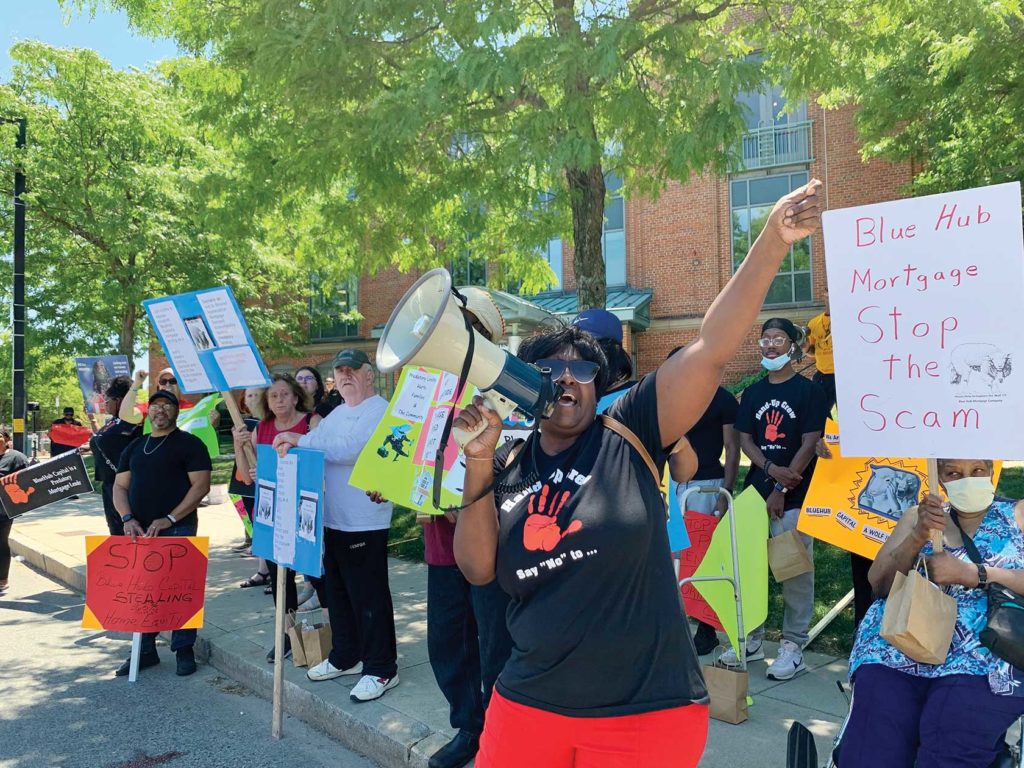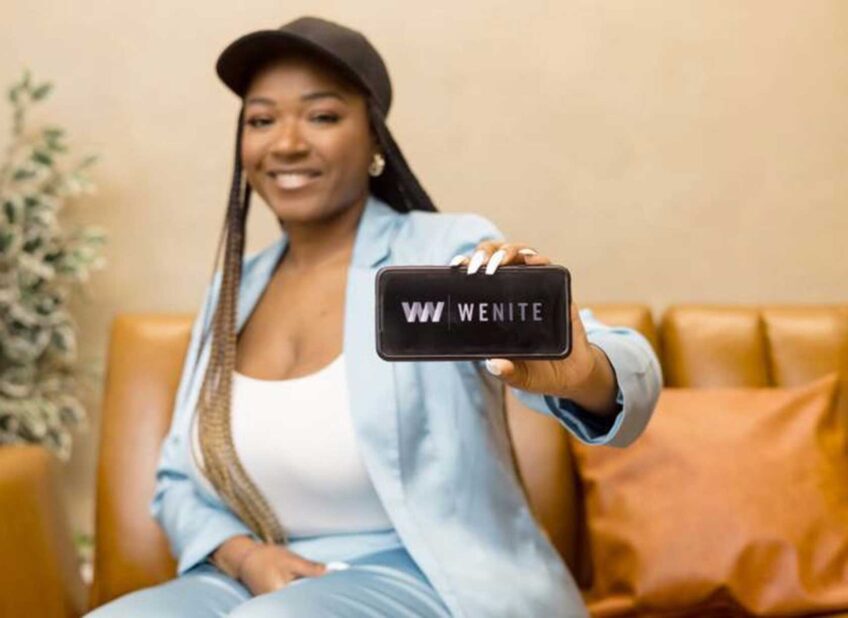Homeowners sue Roxbury mortgage lender
Nonprofit’s mortgage program took cut of equity in homes

Cheryl and Dante Ortiz were diagnosed with different kinds of cancer in the same week. The couple faced mounting medical bills and had fallen behind on their mortgage. One day after a medical appointment, they rushed from the hospital to sign papers in an attempt to save their home in Southbridge, Massachusetts.
“We had the biopsy, got his neck all taped up and drove straight to Boston to sign the mortgage papers,” Cheryl Ortiz recalled. “The only thing I remember about Oct. 31, 2013, is that I signed papers there and I was on the verge of losing my husband. Don’t ask me about what paper, who was there — I don’t know.”
What the couple signed, they later discovered, was a “shared appreciation” mortgage with a Roxbury-based nonprofit that says it helps distressed homeowners avoid foreclosure. BlueHub Capital bought the Ortizes’ home from the bank and sold it back to the couple. When they refinanced three years later, Cheryl Ortiz says she wished she had read the fine print: the relatively new type of mortgage they signed locked them into paying BlueHub 52% of their equity in the home. She owed the lender $40,000 before she could get a new loan.
At a protest Tuesday outside the Roxbury headquarters of BlueHub, formerly Boston Community Capital, Cheryl Ortiz and a few dozen other homeowners rallied against its lending practices. Cheryl, her husband and 17 others describe the nonprofit’s practices as “predatory” and “deceptive” in a lawsuit they filed two years ago in Suffolk Superior Court. They all had received mortgages through BlueHub’s Stabilizing Urban Neighborhoods, or SUN, program.
“They made it sound like they were a godsend and we were going to be saved and we’d have our house,” Cheryl Ortiz said. “They told us we didn’t need an attorney because they were a nonprofit and they provided all the help. Every step of the way, they convinced us that it was in our best interest and that we were going to be safe.”
BlueHub defended its lending practices as beneficial to the distressed borrowers its serves.
“Virtually every homeowner is significantly better off through their participation in the BlueHub SUN program than they would have been if they continued in their default or foreclosed situation,” a spokesperson said in a statement to GBH News. “To our knowledge, no one is operating a similar program, much less at a cheaper price.”
Since 1985, the foreclosure prevention nonprofit says it has worked with more than 1,000 families across 29 states through their shared appreciation mortgage program. The spokesperson said BlueHub “fully discloses the terms … to every homeowner on multiple occasions. None of the states in which SUN operates has ever identified any compliance issues. In fact, all complaints filed by plaintiffs to the Massachusetts Division of Banks have been formally dismissed.”
Shared appreciation mortgages emerged from the 2008 housing crisis as an option for homeowners facing foreclosure, according to Molly Goodman, the executive director of the Midas Collaborative, a nonprofit focused on economic stability and affordable housing in Massachusetts.
“It’s very unique in that no one had really experienced such a massive drop across the board in property values before, and it was sort of like a last resort to keep homeowners in their homes,” she said. “This is not the kind of mortgage program that a first-time home buyer would go out and use for a purchase program, but it was a response to all the negative, predatory options that were already in existence and an effort to keep people in their homes and in their communities.”
Above-market interest rates and the agreements to pay a portion of home equity were created as a stop-gap measure to protect lenders like BlueHub from what began as a financially risky practice, Goodman said.
“It’s important to remember that in 2009 through 2015, I don’t think many people could have predicted that the housing market would be where it is today with such a rise in equity,” she said. “There really was a risk at the time that they could lose money. And they also have investors that give them money to do the program, which is why you see higher interest rates.”
Homeowners like Nardella Thomas, who signed up for a shared appreciation mortgage with BlueHub in 2012, say it wasn’t transparent about her owing 42% of her equity. Thomas took on two jobs to keep up with payments on her home in Webster, Massachusetts.
“It’s predatory, and they have the audacity to say they’ll work with homeowners if we sign our deeds over to them,” Thomas said. “It’s nothing but modern-day sharecropping. We didn’t sign up for this.”
In response to the criticism, the BlueHub spokesperson said, “Homeowners who have exited the program have enjoyed significant home equity, personal wealth, that would not have been available to them otherwise.”
In 2020, BlueHub earned nearly $21 million in interest on loans, according to its financial statements. In the 2020 legal complaint against the nonprofit, lawyers representing the Ortizes, Thomas and other plaintiffs describe its revenue from shared appreciation mortgages as “outsized profits.”
The lawsuit, brought with legal and financial resources provided by the Neighborhood Assistance Corporation of America, is now entering a deposition phase, according CEO Bruce Marks.
“We’re going to depose all their executives, the masterminds behind this predatory scam,” he said. “The regulators have dropped the ball on this. The banking commissioner in Massachusetts had dropped the ball on this. The [Massachusetts] attorney general has dropped the ball on this. That’s why we’re suing.”
The lawsuit claims BlueHub’s lending practices are “disfavored” by existing state law that requires lenders to inform borrowers of their most affordable loan options.
The case is expected to go to trial later this year in Suffolk Superior Court in Boston.
Tori Bedford covers Dorchester, Roxbury and Mattapan for GBH, 89.7.






